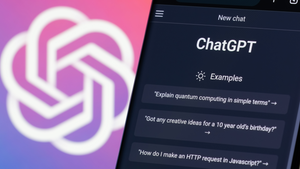The writers suing ChatGPT maker OpenAI for copyright infringement have responded to its attempt to have various elements of their lawsuit dismissed.
"Tellingly", a new legal filing notes, "OpenAI has not moved to dismiss plaintiffs’ direct copyright infringement claim. Nevertheless, OpenAI still tries to leverage its motion to pre-litigate issues it thinks will carry the day in the future. This is improper on a motion to dismiss and should be disregarded".
"Even so", it adds, "some of OpenAI’s distortions of both plaintiffs’ allegations and the law are sufficiently off-base that they demand a response".
Comedian Sarah Silverman is among the group of writers who have accused OpenAI of copyright infringement for allegedly training its generative AI model on copyright protected works without licence. Although not a music case, this litigation will test the copyright obligations of AI companies under US law, making it very relevant for a music industry that is seeking to protect its intellectual property rights in the context of generative AI.
In its response to the authors' lawsuit, OpenAI sought to get many of their claims dismissed, arguing that Silverman et al had misrepresented the reach of copyright law and misunderstood the workings of AI models like ChatGPT. Unsurprisingly, in their response, the writers insist that their interpretation of copyright law is correct, countering the it is the AI company that is trying to "rewrite" precedent set in the US Ninth Circuit Appeals Court.
There are various copyright complexities to be considered when a technology company trains an AI model with existing works, with different questions regarding the initial ingestion of the content, what the AI does with the content, and whether the outputs generated by the AI constitute derivative works.
Though the process begins with the existing works being copied onto a server, which seems like pretty straight-forward direct copyright infringement if that copying is not licensed or covered by a copyright exception. Or - in the US - the principle of fair use.
Although OpenAI's response to the authors' lawsuit covers lots of ground, fair use is mentioned. In their new legal filing, the authors note: "OpenAI telegraphs a future fair use argument. But fair use is an affirmative defence. It is not properly considered as part of a motion to dismiss. Moreover, OpenAI’s construction of fair use is at odds with settled precedent and if adopted here would overrule that precedent, entirely swallowing US copyright".
Which is a pretty big claim. We await to see how OpenAI now responds.

